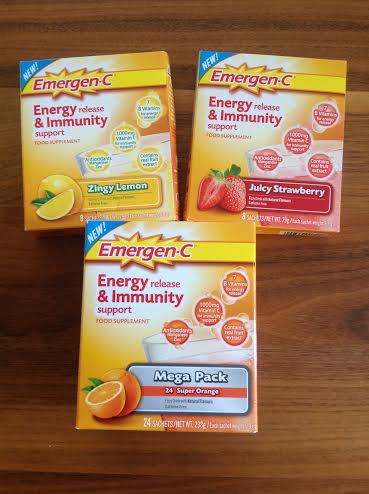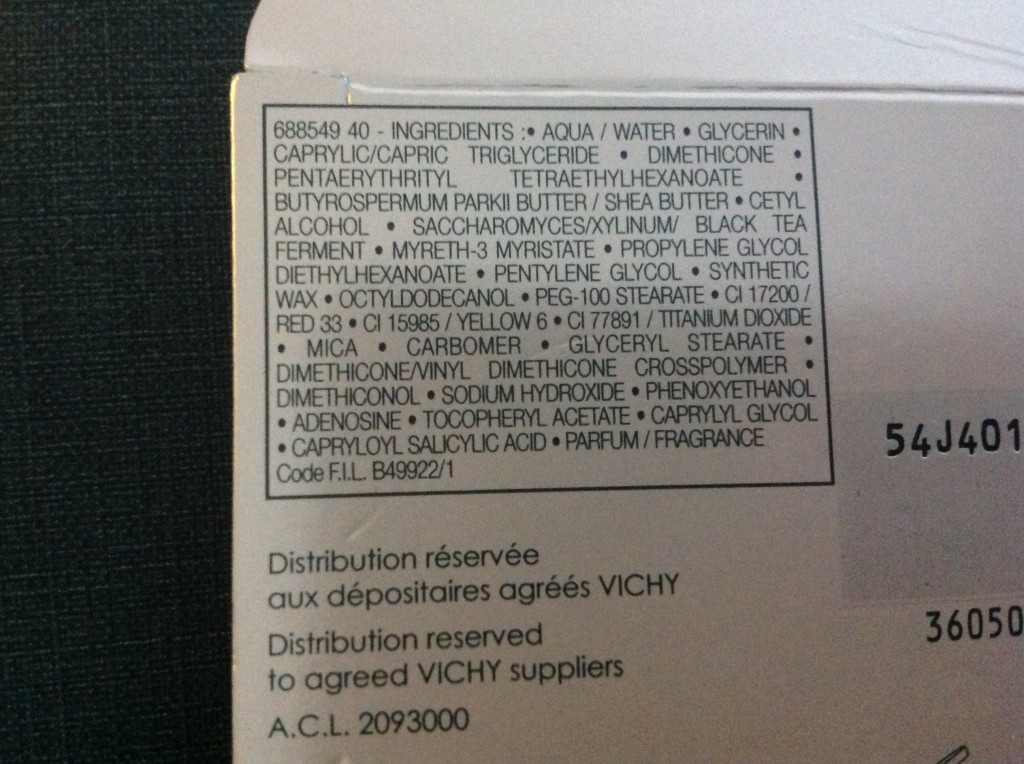 It is hard to know what is the best for your health and the media always seems to be giving conflicting stories. I take a multivitamin but recent press has said this is not a good idea. So, what is fact and fiction? Let’s try and find out.
It is hard to know what is the best for your health and the media always seems to be giving conflicting stories. I take a multivitamin but recent press has said this is not a good idea. So, what is fact and fiction? Let’s try and find out.
In response to an article in the Daily Mail on Thursday July 25th posing the question as to whether vitamins can take years off your life, the Health Supplements Information Service (HSIS) is reminding the nation about the many benefits behind vitamins and minerals that are needed daily to fuel our bodies and keep us healthy.
SORTING OUT THE REAL FACTS:
Vitamins and minerals perform a variety of vital functions in the body, mainly due to their participation in biochemical processes including:
ü working with enzymes to help in the release of energy from food
ü helping to maintain the health of body systems and organs such as the brain, heart, blood vessels and nervous system.
Vitamins and minerals work together to maintain our health and the body cannot function without them. They are essential nutrients and a lack of such vitamins and minerals can lead to poor health.
Vitamins and minerals can be obtained from food, but modern diets are often lacking in these nutrients due to poor food choice. This is amply demonstrated by the findings from the large UK Diet and Nutrition Surveys, which methodologically are among the most robust surveys in the world.
These surveys continue to show a lack of essential nutrients to some extent across population groups but particularly in young women whose mineral intakes may be severely compromised and in children and older people where vitamin D intakes fail to match recommendations.[1]
The most recent data from this survey[2] shows that mean intakes fell below the Reference Nutrient Intake (RNI) for a number of minerals, in particular iron, magnesium, potassium and selenium. This was particularly the case for boys and girls aged 11 to 18 years. Mean iron intake was 58% of the reference nutrient intake (RNI), the same proportion as in the previous survey of this age group. Mean intakes of magnesium and potassium also fell below the RNI for both boys and girls aged 11-18 years, as did zinc, calcium and iodine for girls.
Substantial proportions of older girls had mineral intakes below the Lower Reference Nutrient Intake (LRNI; a level at which deficiency is likely); 46% of girls aged 11-18 years had intakes of iron and magnesium below the LRNI; the equivalent figure for potassium was 30% and for zinc 15%. Among boys of this age group, 26% failed to achieve the LRNI for magnesium.
Intakes of calcium were of particular concern in 11-18 year old girls, an age at which calcium is particularly important for bone development. More than one in 10 girls in this age group failed to achieve the LRNI for calcium.
Significant numbers of adults also had low intakes. One fifth of adult women failed to achieve the LRNI for iron, while one in 10 men and one in 10 women failed to achieve the LRNI for magnesium.
Intakes of selenium fell below the RNI in both older children and adults. Adult women overall achieved 72% of the RNI while adult men achieved 74% of the RNI. Around half of adult women and older girls and a fifth of men and older boys had intakes below the LRNI.
It is clear that UK dietary surveys continue to show that significant numbers of the population do not achieve recommended intakes of essential nutrients. In the light of this continuing dietary gap, it is misleading to imply that vitamin pills are unnecessary.
A 2010 report entitled “Towards a Healthier Britain”[3] found evidence that vitamin and mineral supplements boost intakes and increase blood levels of these essential nutrients with fewer people taking multivitamin and mineral supplements having intakes below recommendations.
NUTRIENT SPOT LIGHT:
Vitamin E
Vitamin E is the collective name for a group of fat-soluble compounds that exhibit antioxidant activity. Antioxidants protect the body cells from the damaging effects of free radicals, which are molecules that contain an unshared electron. Unshared electrons are highly energetic and react rapidly with oxygen to form reactive oxygen species (ROS). The body forms ROS when it converts food to energy. The body is also exposed to free radicals from environmental factors such as cigarette smoke, air pollution and UV radiation. Free radicals damage cells and may contribute to the development of body organ damage.
In addition to its activities as an antioxidant, vitamin E is involved in other essential functions such as immune function, chemical messaging between cells, regulation of gene expression, and other metabolic processes.[4] Vitamin E inhibits the activity of protein kinase C, an enzyme involved in cell proliferation. Vitamin-E–replete blood vessels have been shown to be better able to resist blood cell components adhering to the blood vessel surface so helping to maintain the health of the blood vessels. Vitamin E also increases the activity of two enzymes that influence fatty acid metabolism, which again helps to maintain the health of the blood circulation.[5]
Vitamin E is one of the essential nutrients for health. Several studies, including the two studies mentioned in the Daily Mail article have evaluated the role of vitamin E in large doses, often 40 times and more greater than the RDA. These studies have involved methods similar to those used in drug trials to see if vitamin E and other essential nutrients can prevent or treat disease.
However, vitamin E, like all essential nutrients is essential for the maintenance of health and prevention of deficiency. Such drug-like trials may be of interest to researchers looking for mechanisms of action but are of no relevance for the daily health maintenance of the UK population where intake of vitamin E should follow recommended amounts. Recommended daily amounts of vitamin E have not been associated with adverse effects in healthy populations. Anyone taking medication or with any disease should ask for the advice of their health care professional about their nutrient intake.
Vitamin C
Vitamin C (ascorbic acid) is an essential vitamin required for the formation of collagen in bone, teeth and blood vessels. It also helps to maintain the optimal activity of several enzymes and is involved in the synthesis of several physiological compounds in the body such carnitine and noradrenaline. Vitamin C acts as an antioxidant and helps in the absorption of non-haem iron (iron from plant sources).
Low vitamin C intake has been associated with conditions such as stroke[6] and periodontal disease.[7] Studies in which people have taken vitamin C supplements on a regular basis indicate that vitamin C may reduce the duration of colds.[8] Vitamin C may be useful for reducing the development of colds in people exposed to brief periods of severe physical exercise.[9]
Calcium
Calcium is an essential nutrient that plays a whole host of vital roles for health in the skeleton, blood and neuromuscular system. The essentiality of calcium for bone health is indisputable and as many as one in 10 young women in the UK have an intake which falls below the Lower Reference Nutrient Intake (LRNI),[10] an intake at which deficiency is likely with consequences for bone health throughout life.
The Journal of the American Medical Association study[11] mentioned in the Daily Mail article in which calcium was linked with cardiovascular disease (CVD) was not a randomized controlled trial (RCT) but a prospective study from which a cause and effect cannot be established with certainty. There was also no information in the JAMA paper on the duration of supplement use and a lack of information on family history of CVD. Calcium intake was self reported by the study participants and therefore subject to error. In addition, calcium intake was only measured at baseline; so change in dietary or supplemental calcium intake could not be assessed during follow-up.
Selenium
Selenium is an essential trace mineral which functions as a part of several seleno-proteins and enzymes involved in essential metabolic processes. However, In the UK, intakes of selenium are low. Data from the 2006 UK Total Diet Study showed that the mean intake of selenium is 48-58 micrograms a day which is below the UK reference nutrient intake of 75 micrograms a day for men and 60 micrograms a day for women.[12] Similar findings emerged from the latest UK National Diet and Nutrition Survey (NDNS) [13] in which intakes of selenium fell below the Reference Nutrient Intake (RNI) in both adults and older children. Adult women overall achieved 72% of the RNI while adult men achieved 74% of the RNI. Around half of adult women and older girls and a fifth of men and older boys had intakes below the Lower Reference Intake (LRNI). Such low intakes are associated with reduced blood levels of selenium and significantly increased risk of mortality in both Europe and the US.[14],[15]
Summary:
Overall, there is ample evidence to suggest that many people in the UK have a poor diet with below recommended intakes of essential nutrients. Though these nutrients should ideally be obtained from the diet, it is clear that this is not happening. A multivitamin and mineral supplement in recommended amounts represents a useful means of helping to bridge this dietary gap.
[1] Bates B, Lennox A, Prentice A et al. (2012) National Diet and Nutrition Survey. Headline Results from Year 1, Year 2 and Year 3 (combined) of the Rolling Programme (2008/2009-2010/2011). Department of Health
[2] Ibid
[3] Mason P, Ruxton C. Towards a Healthier Britain. Proprietary Association of Great Britain (PAGB) 2010
[4] Traber MG. Vitamin E. In: Shils ME, Shike M, Ross AC, Caballero B, Cousins R, eds. Modern Nutrition in Health and Disease. 10th ed. Baltimore, MD: Lippincott Williams & Wilkins, 2006;396-411.
[5] Ibid
[6] Myint P, Luben R, Welch A et al. Am J Clin Nutr 2008 ;87 :64-69
[7] Leggott P, Robertson P, Rothman D et al. J Periodontol 1986 ; 57 :480-485
[8] Hemila H, Chalker E. Vitamin C for preventing and treating the common cold. Cochrane Database Syst Rev. 2013 Jan 31;1:CD000980.
[9] Ibid
[10] Bates B, Lennox A, Prentice A et al. (2012) National Diet and Nutrition Survey. Headline Results from Year 1, Year 2 and Year 3 (combined) of the Rolling Programme (2008/2009-2010/2011). Department of Health
[11] Xiao Q, Murphy R, Houston D, et al. Dietary and Supplemental Calcium Intake and Cardiovascular Disease Mortality. The National Institutes of Health–AARP Diet and Health Stud. JAMA Intern Med. Published online February 4, 2013. doi:10.1001/jamainternmed.2013.3283
[12] Food Standards Agency. Survey on measurement of the concentrations of metals and other elements from the 2006 UK total diet study. Food Survey Information Sheet 01/09. London: UK. FSA 2009:16-17, 37-45
[13] Bates B, Lennox A, Prentice A et al. (2012) National Diet and Nutrition Survey. Headline Results from Year 1, Year 2 and Year 3 (combined) of the Rolling Programme (2008/2009-2010/2011). Department of Health
[14] Bleys J, Navas-Acien A, Guallar E. Serum selenium levels and all-cause cancer and cardiovascular mortality among US adults. Arch Intern Med 2008;168:404-10
[15] Akbaraly NT, Arnaud J, Hiniger-Favier I et al. Selenium and mortality in the elderly: results from the EVA study. Clin Chem 2005;51:2117-23.
















